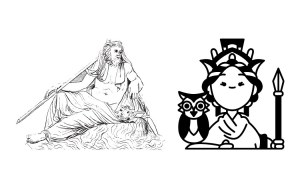Jared Diamond’s Answer to Yali’s Question
In his groundbreaking book Guns, Germs, and Steel, author Jared Diamond seeks to answer a profound question posed by Yali, a New Guinean politician:
“Why do white people have so much cargo, but we New Guineans have so little?”
By “cargo,” Yali was referring to material wealth, technology, and resources brought by Europeans, contrasting them with the relative lack of such advancements in his own society. Rather than attributing the disparity to intelligence or cultural superiority, Diamond argues that geography and environmental factors played the most significant roles in shaping the development of civilizations.
His answer centers around geographic luck—the availability of domesticable plants and animals, fertile land, and favorable climates allowed some societies to develop agriculture earlier than others. This led to food surpluses, population growth, specialized labor, and, eventually, the rise of powerful nations with advanced technology, political systems, and military strength. Societies that had access to wheat, barley, cattle, and horses (as in the Fertile Crescent) gained an early advantage over regions where such resources were scarce.
Furthermore, Diamond explains that diseases—such as smallpox and measles—evolved in societies that lived closely with domesticated animals. When Europeans arrived in new lands, these diseases devastated indigenous populations, giving colonizers an unintended yet crucial advantage.
Ultimately, Diamond’s answer to Yali’s question is that historical inequalities are not due to inherent differences in intelligence or effort, but rather the result of geographical and environmental advantages that allowed some societies to progress faster than others. This perspective challenges traditional narratives and provides a deeper understanding of how the modern world was shaped.




Leave a comment